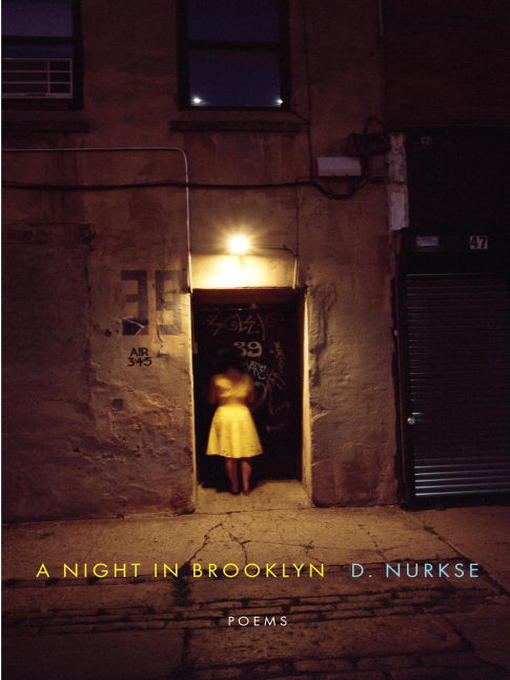
A Night in Brooklyn
Poems
- اطلاعات
- نقد و بررسی
- دیدگاه کاربران
نقد و بررسی

Starred review from June 25, 2012
Desire creates reality in the latest from Nurkse: “We wanted so much that there be a world/ as we lay naked on our gray-striped mattress,” the book begins. Throughout its three sections “each act a past and a future/ an almost and absolute,” and those who act and desire are vulnerable, haunted by time’s forward motion. The Brooklyn of the opening title section is at once literal borough and a living context where, “Though we are fading/ all our actions last forever.” Here, even the dead can remember Brooklyn—a deceased father can still frequent the haunt where his son tends bar—while the living always return “to slip the key in the lock,/ and come back to the present,” where lovers fight next door. From far-reaching outskirts of this all-encompassing Brooklyn, new voices enter in the second section, “Elsewhere,” including Andalusian fragments and riddles from Spanish and French. Lastly, “No Time,” further records and questions what’s fleeting: “If this is happiness,/ how shall we leave it,/ if this is grief, how to enter it.” Nurkse recalls: “How we loved to create a world,” and he renders our imperfect world perfectly in this stunning book.

August 1, 2012
"Flatlands," "A Stoop in Bensonhurst," "Twilight in Canarsie": urban working-class neighborhoods set the scene for many of the poems in this collection by Brooklyn's former poet laureate and author of nine earlier books of poetry (The Border Kingdom). The voices here emerge from behind sooty walls and layers of paint, breathing hopeful despair into mirrored interiors: "I love my life, she says, / but really I would like to be elsewhere." Like the arguing neighbors "on that linden-shaded industrial block/ between Linwood and Crescent," the speakers seek an elusive wormhole into another world, "the night sky hidden/ at the center of the last period." As time and space play their disorienting tricks, the present discloses a foreboding future: "Which of us was crying?/ Would we ever know?" When the dead enter (the speaker's ghost father comes into a bar for a glass of muscatel), it is like the old joke without a punch line: there may be humor here, but it is buried deep. VERDICT These stark, unhinged poems move from the non-chic neighborhoods of ethnic Brooklyn into other worlds, with unrelenting sadness and a startling eye. For sophisticated readers.--Ellen Kaufman, New York
Copyright 2012 Library Journal, LLC Used with permission.




دیدگاه کاربران